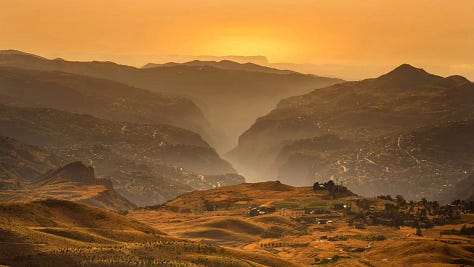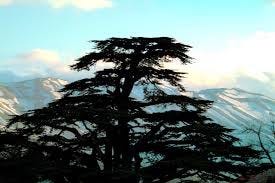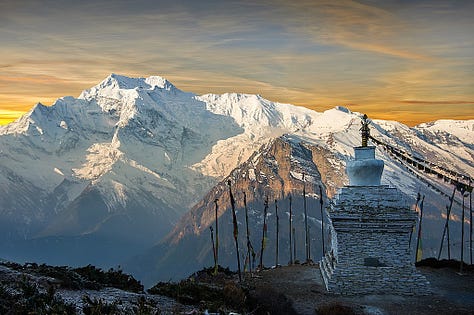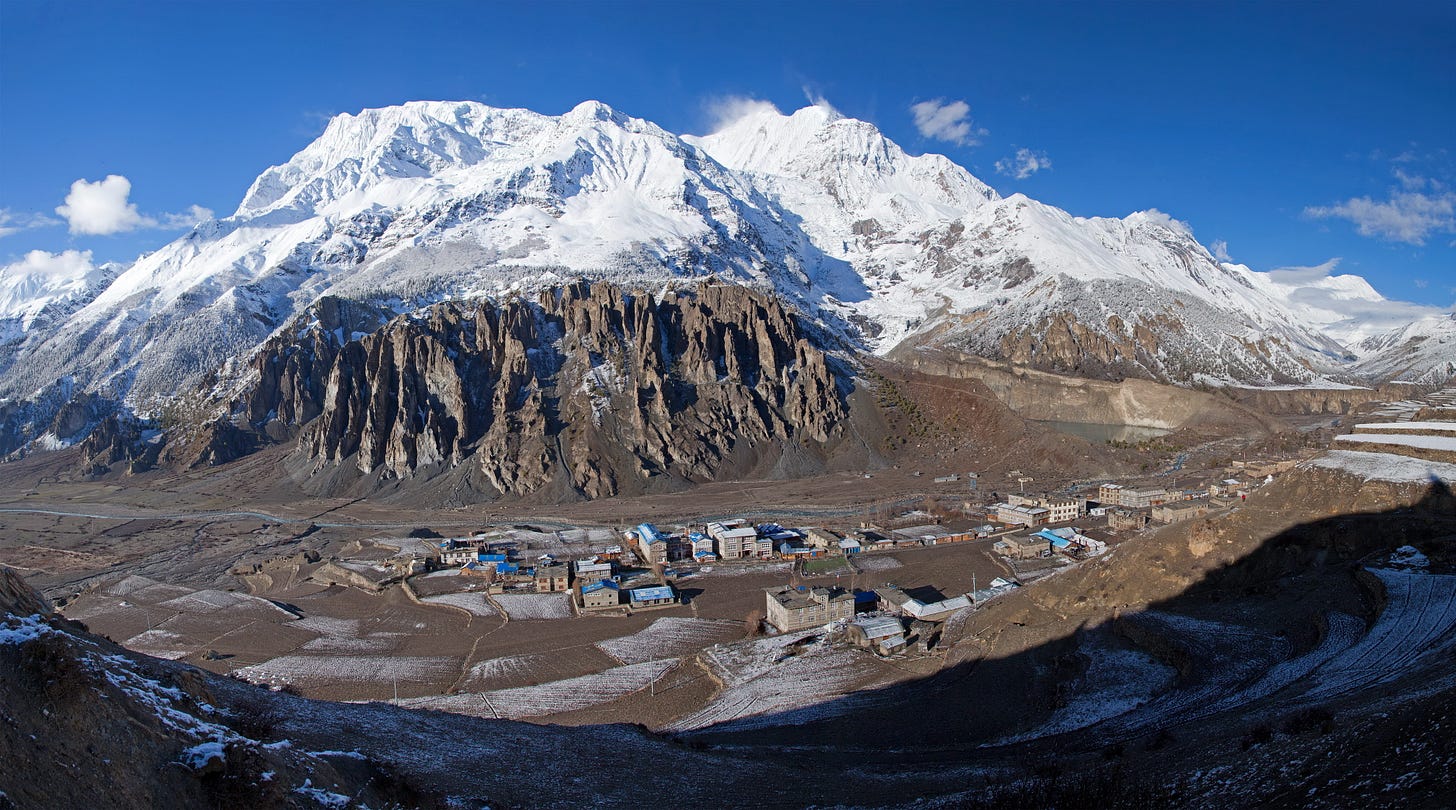Previously:
After a tense drive along a winding cliff road, Joseph suggested a detour to his university, hoping to ease the growing unease between us. We explored the campus and its impressive library, rich with Khalil Gibran’s works. But the night took a darker turn when we encountered a surprise checkpoint on our way to get Knafeh. Joseph’s calm demeanor shattered as he was dragged out of the car and beaten by soldiers, leaving me in a state of shock and rage. Despite the brutality, Joseph remained composed, urging me to stay calm. The encounter left me questioning the depth of his resilience and the realities of the world he navigated daily. As dawn broke, we found ourselves at an abandoned parking lot, sharing a quiet moment of connection amid the chaos.


Joseph’s sharp rat-a-tat on the window jolted me awake. I was still tucked in at Rafik’s, groggy and barely processing the morning. "Yalla! Let’s go," he urged with an energy that seemed to defy the early hour. Isabella was already one step ahead of me, greeting my sleepy eyes with a steaming shot of arabic coffee and a breakfast spread that looked like it was meant for a queen. The aroma was comforting, a momentary distraction from the lingering unease of yesterday’s tense checkpoint.
I picked at the array of dishes, still unsure how to properly combine them, but I couldn’t hold back any longer. "Joseph," I asked between bites, "where are we headed? And I kinda need to know—what happened to you the other night? It’s been on my mind for two days now, especially after everything yesterday. Yesterday was... a lot." My voice trailed off, the weight of the previous day’s events hanging heavily between us.
Joseph's silence was unnerving. His dark, liquid eyes—usually so warm—held a secret that I wasn't sure I was ready to uncover. But I knew one thing: I couldn't keep following him blindly into chasms, not without answers. As I waited for him to respond, the memory of those soldiers at the checkpoint flashed in my mind. I hadn’t slept much either, the images playing on repeat behind my eyelids.
He sighed deeply, a sound that echoed more than fatigue—it was layered with something deeper, something I wasn’t sure I wanted to dive into so early in the morning. But I had to. This was his world, his life, and if I was going to survive it, I needed to know where the line between our realities was drawn, if it even existed.
"Joseph," I pressed, my tone softer now but insistent, "I’m all in, you know that. But I need to know what’s going on. No more surprises, okay?"
He glanced at me, his expression unreadable, but then a small smile played at the corners of his mouth. "Alright," he said finally, " I promise, I’ll tell you everything, on the road. But first, another adventure, if you’re up for it."
Adventure. The word hung in the air, as thrilling as it was foreboding. And despite the gnawing uncertainty, I knew I would follow him anywhere. This was Lebanon, after all—nothing here was ever as it seemed.
As we drove through the winding streets of Beirut, Joseph leaned over, laughing softly as he helped me adjust my seatbelt.
"You don't need to wear that here," he said with a grin.
"I know, but it’s become a fierce habit," I replied, my voice tinged with a hint of sadness. "One that probably should’ve saved one of my best friend's life."
His smile faded slightly, replaced with a look of understanding. "I’m going to take you way up north to the Cedars of God, but first, we need to pick up Rony and Vince."
"The Cedars of God?" I asked, my curiosity piqued.
"Yeah," Joseph nodded. "These aren’t just any trees. They are the remnants of an ancient forest that once blanketed all of Mount Lebanon."
"Wow," was all I could manage, my thoughts drifting back to my favorite trees back home. "Are they like the Redwoods?" I asked.
"Yeah, but different," Joseph replied.
He went on, "These trees have been around since the dawn of time, they’ve seen empires come and go. Their wood was a really big deal—everyone from the Phoenicians to the Egyptians used it for temples, even palaces. And even after all these years of people chopping them down, they’re still standing strong, like the ultimate nature survivors."
This was more than just a trip—it was a journey into history, into the very roots of a land that had witnessed so much. And I couldn’t wait to see it for myself. The idea of heading up into the mountains intrigued me—a mystery waiting to be unraveled.
We parked by a beautiful church, and the bells began to ring. A group of nuns walked out in prayer. In a hushed tone, Joseph began to share where he had been the other night. "So... you remember the convent that I pointed out next to my University, right?"
"Yes," I nodded, curious.
"Well," he continued, "I’m kind of on call for them in case of emergencies. We go out and rescue people who are in trouble."
"What kind of trouble?" I asked, leaning in.
"The kind of trouble that..."
A knock on the window cut him off—it was Rony and Vince, Joseph’s friends. Joseph’s glance basically said, "Sorry, you’ll have to wait," and I felt like a little kid being told to go to bed so Santa could finally come.
They piled into the car, filling it with chatter and excitement, as we began our journey north. As we drove, Rony leaned over, a twinkle in his eye. "Did you know," he said, "that the Phoenicians used to carve ships out of these very cedars to sail to Europe? And they named Europe after our queen, Europa." He grinned, proud of the rich history embedded in the trees we were about to see. Seeing the interest on my face, he continued to tell the rich history, “You know, Cadmus traveled to Greece in search of his sister, Europa. On that journey, he brought with him the Phoenician alphabet, which the Greeks later adapted into their own. That Greek alphabet eventually influenced the Latin one used across Europe today. So, in a way, the roots of Europe’s written language trace back to our part of the world.”
The road to the Cedars was steep and winding, each hairpin a sharp reminder of our relentless climb. The air grew colder with every twist and turn, a bracing chill that crept into the car like the fingers of winter. It tugged at my memories, pulling me back to the days I spent trekking through the Annapurnas in Nepal. The landscape outside the window—with its plunging valleys and towering peaks—echoed the rugged terrain of the Himalayas, stirring a deep sense of nostalgia.
As the altitude climbed, so did that familiar sensation, the thin air biting into my lungs just like it had in those ruthless days in Nepal. Every turn of the road felt like a battle against the earth itself, a reminder of the sheer power and beauty of the mountains. The drive was breathtaking, the tiny villages we passed seemed to cling to the hillsides, each one a testament to the resilience of the people who lived there.
The trek was more than just a drive; it was a passage through time and memory, linking the ancient forests of Lebanon to the windswept peaks of the Himalayas, and I felt the weight of history and the pull of my own past with every mile.
I felt myself slipping inward, my heart beginning to rapidly race. Oh no, no, no. Not here. Not now. Deep breaths, April, I whispered to myself, trying to stave off the rising panic. My fingers tightened around the "oh shit" handlebar, knuckles white with tension. Joseph noticed the shift in my demeanor, his eyes meeting mine as concern softened his voice.
"Are you okay, April?" he asked gently.
I nodded, but I wasn’t sure if I really was. Anxiety attacks are no fucking joke. That year, they had hit me like a freight train. I had never been prone to anxiety before, never one to dwell on worried thoughts. But then, out of nowhere, I was hit with a rude awakening. It happened while I was in my library teaching at school—I thought I was having a heart attack. I ran to the office, kids’ faces were a blur of concern. "Ms. Larson, are you okay?" their voices echoed, each one tightening the knot in my chest. I had the secretary call an ambulance, convinced I was about to take my last breath.
The paramedics arrived, calm in the chaos. They checked my blood pressure, my vitals—everything was perfect. One of them, who looked like he could’ve been my younger cousin, sat down next to me and asked a series of questions. "Have you suffered a big loss? Is someone close to you very sick?"
I answered yes to all of them.
He looked at me, sympathy in his eyes. "Most people with anxiety attacks answer yes to three or maybe five of these questions. You answered yes to all ten of them. Is there someone you can maybe talk to?"
"You mean, like a therapist?" I replied, feeling lost, struggling to catch my breath as I tried to shake off the awful, hollow feeling of shame.
I’d never seen a therapist before—never thought I needed one. But I couldn’t shake the feeling of dying, the overwhelming sense that my time was running out and there was still so much left to do! This foreign sensation of being so out of control, as if I were floating outside my own body, felt like a horrific nightmare, like being trapped in a bad trip.
I had always taken really good care of myself—yoga, hiking, dancing, surrounded by great friends, a life I loved. But maybe, just maybe, my mind was trying to tell me something. At that point, I would have done anything to never feel like that again.
And now, here I was, smack dab in the Middle East, climbing higher and higher into abyss territory, the ancient Cedars of God looming ahead. I could feel that gnawing precursor creeping back, that all too familiar, unwelcome wave. I was on the verge of having an attack, and the fear of it threatened to swallow me whole.
Joseph, ever kind, noticed my discomfort and leaned in, his voice soothing. "Just hang in there," he said. "There’s a spot up ahead, just a few more minutes. We can stop and have a bite to eat." I nodded, gripping the handlebar as if that could somehow ease the feeling.
The guys in the back were oblivious to my inner turmoil, excitedly chattering about the prospect of food. We pulled over at a small sandwich shop nestled in the mountains. Joseph ordered a falafel wrap for me while I stepped outside, breathing in the cool, crisp mountain air.
When he returned with the wrap and an orange soda, I took a few bites, the warmth of the food grounding me. "We’re pretty high up here," Joseph said, observing me closely. "Your body probably just needs to acclimate."
I managed a smile. "Something like that."
The sandwich and the orange soda helped, but I wasn’t sure if it was the food or Joseph’s calm, commanding presence that staved off the attack. Perhaps it was really just the altitude, or maybe it was just his reassuring confidence that everything would be okay. As we got back on the road, Joseph smiled at me, his eyes full of encouragement. "I promise you, this is going to be worth it. You got this."
I smiled back, and for the first time in a long while, I actually believed in someone—him.
As if the journey demanded one final test, a wave of nausea swept over me, the altitude pulling me back to the heights of Manang. Climbing toward the Cedars, another surge hit, flooding me with memories of Nepal—when the altitude had drained every ounce of strength, leaving me hallucinating and clinging to the bed as reality blurred into a void. I had been hit so hard with altitude sickness that I was forced to wait it out for a couple of days unable to do anything but endure. Now, nearing the Cedars, those memories resurfaced, mingling with old tears. But this time, I was different, stronger. I wasn’t the same person who had struggled up those unforgiving slopes of Thorung La.
As we rounded the final bend, the Cedars came into view, their massive trunks rising like pillars, their branches reaching toward the sky. The air stilled, a reverent hush falling over us. And I knew, deep in my bones, that I was exactly where I was meant to be.
“We’re here!” Rony exclaimed from the back seat.
Up ahead, an old wooden cabin came into view, smoke curling lazily from its chimney. The sight of 20-foot snow banks lining the road caught me off guard. I knew we were high up—almost 3,000 meters—but seeing snow in Lebanon felt surreal, as if my brain couldn’t quite reconcile the image.
Vince turned to me, a playful grin on his face. “Think you’ll be okay hiking through the snow to see the oldest Cedars in the world?”
I laughed, shaking off the initial surprise. “Of course! I know snow,” I said, though I glanced down at my jeans and tennis shoes, realizing this would be a first. The idea of trudging through snow in this unexpected place, with such ancient trees waiting for us, made the moment feel all the more extraordinary.
The Cedars, some of the last remnants of a forest that once covered Mount Lebanon, were just beyond that snowy path—trees that had stood for many thousands of years, witnessing the rise and fall of civilizations. The prospect of walking among them, even in less-than-ideal footwear, sent a thrill through me.
The snow was far deeper than I had anticipated. With each step forward, I sank further, until the snow reached my waist, each movement a battle against the cold, dense blanket that covered the earth. It reminded me of snowshoeing with my marathon-running cousin, who had always pushed me to my limits, urging me on through endless, grueling treks. Those challenges had prepared me well for this moment, but even so, this was tough.
As we trudged on, the air grew still, and then, suddenly, we arrived at the grove. I stopped in my tracks, my breath catching in my throat. The ancient cedars stood before me like sentinels of time, their massive trunks rising from the earth, each one a towering relic of history. There was a sacredness here, a presence that felt like the very breath of angels, wrapping around me, sheltering me from everything that had come before and all that would follow.
Time seemed to halt, as if I had stepped into a wrinkle where past, present, and future merged into one. There was no foreboding—only a deep, profound reckoning. Through the crisp green sprays, I felt the weight of history—not just mine, but of my ancestors and those yet to come. The cedars whispered to my soul, their ancient wisdom reminding me that every step I took was part of a larger story—a story of the earth, of life, of all that had been and all that was yet to come. In that glimpse of a moment, I understood why they were called the Cedars of God.
"Gotcha!" Vince's voice broke through the stillness as he clicked an old camera. He grinned, holding it up triumphantly. "That’s a great picture!"
In my early travels, I wasn’t one to snap endless selfies at every stop. But for once, I was glad to have a memory captured in photo form—or so I thought. The irony? Vince, eager to impress, fumbled with the camera, completely oblivious to how it worked. Not a single photo survived. It was almost poetic—no image could have captured what I felt in that moment anyway.
Joseph reminded us that we needed to head back if we wanted to make it down the pass safely before darkness fell completely. The return path back to the Jimmy was easier; I simply followed the trenches I had carved on the way in. But by the time we reached the wooden cabin, I realized just how close I was to frostbite. My jeans were entirely soaked through, and I was shaking uncontrollably.
We hurried inside the cabin, where the warmth and the scent of burning cedar wood enveloped us. The cozy space was filled with cute souvenirs and clothes, each item inviting us to linger a little longer. Joseph spoke in Arabic, and soon they brought me a steaming cup of tea. I huddled by the fireplace, the heat slowly seeping back into my bones.
Joseph disappeared briefly and returned with a pair of warm socks and a pair of his fuzzy pajama pants that he kept in the car. As soon as I put them on, they felt like a huge warm cloud against my skin, finally chasing away the chill that had settled deep within me. They felt just right, and I relished the thought that he had thought of me—and that I was wearing his pants. Even if I probably looked like a Christmas elf in an oversized costume, it didn’t matter.
As the warmth returned, my thoughts began to clear. I wandered around the cabin, picking up a few souvenirs—one of which I still carry to this day as my keychain: a small piece of cedar wood, my name burned into it in Arabic. It’s a little piece of magic, a reminder of the ancient trees and the journey that took me to the very edge, only to bring me back, wrapped in the comfort of warmth and memory.
We piled into Jimmy and began our descent, the guys already buzzing with midnight plans—talking excitedly about wine, Christmas preparations, painting, and poetry at the artist hub, which is a basement where they all hang out and create. They even asked what I wanted for Christmas, which I found incredibly endearing. But I was far too exhausted to join them. Their rhythmic chatter in Arabic, like a soothing lullaby, began to lull me to sleep. All I could think about was collapsing face-first onto the bed. Just as I started to nod off, a sudden jerk of the wheel snapped me back to full alertness.
We nearly skidded off the cliff when a car suddenly veered toward us, but Joseph's reaction was swift and precise, his hands gripping the wheel with unflinching control as he maneuvered us to safety. The close call sent a jolt of adrenaline racing through my veins. It was a skill I had definitely noticed but hadn’t yet asked about, so I turned to his friends. "How did he become such a skilled driver?" I wondered aloud.
Rony gave me a knowing look. "His dad used to race cars," he said. "And during the 2006 war, Joseph would race F-16s in his Alfa Romeo, dodging bombs as they fell around him."
"Nuh-uh, come on! That sounds made up," I protested.
Rony just smirked. "He's a pretty crazy guy if you hadn’t noticed."
Oh, I had noticed—big time. But this? This was something else entirely.
It wasn’t until much later that I grasped the full weight of what that experience had etched into him. Back in the PNW, where Seafair’s annual air show had the Blue Angels thrilling the crowds, Joseph’s experience with those same jets was anything but celebratory. Their deafening roar, which once filled me with awe, was a haunting trigger for him—a sharp reminder of the jets buzzing past his windows, not as a display of skill, but as harbingers of destruction.
The contrast between our upbringings couldn’t have been starker. While I watched the Blue Angels with wide-eyed excitement, Joseph had once raced against those very jets in a desperate bid for survival. For him, they weren’t symbols of summer joy but echoes of a past marked by terror and resilience.
As the Jimmy rumbled on, I couldn’t shake the feeling that I was only starting to unravel the layers of the man beside me—the man who had once outrun war and, as it turns out, might be part of some secret society that helps people in trouble... But what kind of trouble? I’m still figuring it out.





Love the detail in which you recall the story, you are so talented! And enjoying reading these very much.
Stunning, as usual.